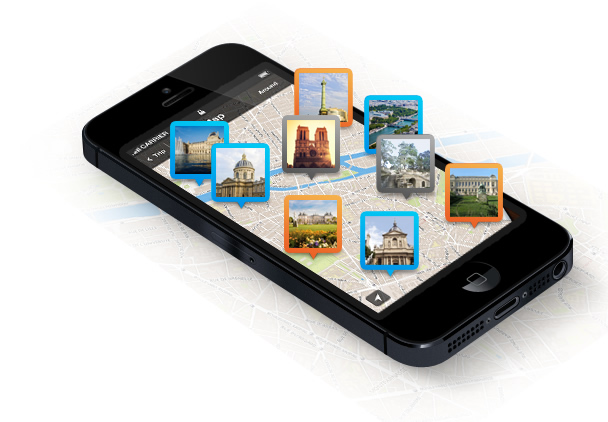Mobile is a much-hyped platform, and if you’ve decided you need a way to reach customers while they’re traveling, the allure of rolling out an iPhone or Android app with your businesses’ name on it can be great. But do you need the expense of a mobile app, or will a mobile website serve you just as well?
There are a number of considerations which go into this decision, both business and technical. In some cases it may be obvious, but even for very large businesses with the budget to choose either, taking a moment to consider which option fits you best can produce vastly better results down the line.
Business Questions
First, you need to determine exactly what your app should do for your business. Maybe your current website is not doing a good job when travelers visit to look up your hours or location or amenities. Maybe your marketing would benefit from people being able to make reservations or pre-order online. Or perhaps you’d like to provide free language guides for international visitors. Once you know your goal, then you can start thinking about more technical and operational questions.
Who is your Audience?
A key consideration is how often and how people will be using your mobile app or website. Generally, people download an app for things which tie into their overall lifestyle or for things they do regularly, like looking up directions or finding cheap flights. On the other hand, if people only visit occasionally — like checking out a hotel or restaurant — a website is often preferred.
What User Experience do you Want to Provide?
If your project involves providing a really robust and involved user experience with lots of graphics, apps tend to be the way to go. Apps can access the phone’s camera to let people take pictures in the app. They can also store data in the app for offline use — this is crucial if people should be able to use the app even when there’s no Internet connection available. (If your customers should be able to interact with your brand while traveling on trains or in an airplane, an app is the way to go.)
On the other hand, if the main point if your project is to allow people to access server-side information (such as booking tables) then a website makes more sense. You can even do both, though of course you needn’t do both right now.
What’s your Budget?
As a rule, mobile websites will be significantly cheaper to develop. You can develop a mobile website using your current web development infrastructure, and you only need to develop one — instead of needing different apps for iPhone and Android.
Technical Considerations
On top of the business questions, there are also a few technical questions you need to take into account. For example, travelers tend to prefer apps in general. It’s simply easier not to have to worry whether or not there’s signal or a wireless network within range. (Don’t let this dissuade you from focusing on a mobile website if it better fits your project, however: everyone from InterContinental Hotels to TripAdvisor have had great success with websites.)
On the other hand, if SEO is part of your project goals, a mobile website can be found using standard search engines and local search may be a major part of your campaign. For this a mobile website will work much better (you can even send paid search traffic to a mobile website, since most search providers allow segmenting out mobile users).
Of course there are more considerations too. For most businesses, however, these are the main things you need to take into account before you move forward. Your developer will be able to walk you through the other questions (like hardware functionality access, etc) as the project proceeds.
